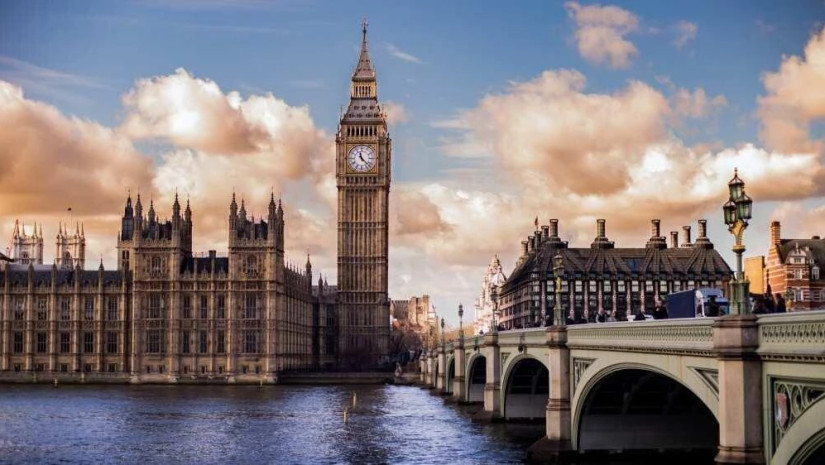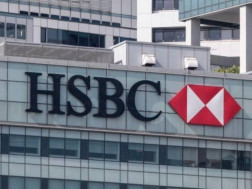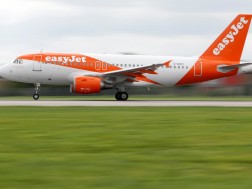London is the 6th most expensive location in the world according to the latest Cost of Living report from global mobility specialist, ECA International (ECA), analysing costs of consumer goods and services in more than 480 locations worldwide. Hong Kong claims the top spot globally, followed by Tokyo, New York and Switzerland’s Geneva and Zurich,eca-international.com reports.
According to the report, London’s ranking is largely attributed to high rental accommodation costs in areas popular with expatriates which are almost a third higher than in Geneva and twice as high as in Paris. The comparative strength of the British pound pushed UK cities up the rankings with London rising four places and Edinburgh and Manchester also rising in to the top 100 (91st and 100th respectively).
Steven Kilfedder, Production Manager at ECA International, explained: “The British pound has rebounded from the lows reached last year when uncertainty over Brexit culminating in a general election pushed the value of the pound down. Since then the pound has gained strength, including rising 8% against the US dollar, which means visitors and international assignees visiting and living in the UK may find goods and services more expensive. With Brexit negotiations reaching another crunch point this could have a significant impact on the UK’s ranking in the future through exchange rate changes and possible inflation due to increased trading costs."
ECA International has been conducting research into the cost of living for over 45 years to help businesses ensure that their employees’ spending power is maintained when sent on international assignments.
This year, European countries make up 40 of the top 100 most expensive locations in the world thanks in part to the strength of the euro, pound and Swiss franc. Swiss cities Geneva and Zurich are the most expensive in Europe and 4th and 5th globally while London ranks the third most expensive location in Europe, followed by Copenhagen and Bern (12th and 13th globally). Eurozone locations such as Paris (29th), Dublin (37th), Helsinki (44th) and Munich (48th) rank in the top 50 globally.
Kilfedder explained: “London is an expensive place for many Europeans with housing costs being the main factor. Most everyday items are often of a similar price compared to many other European locations but the average rental prices for expatriates in the UK capital are significantly higher than the vast majority of its European neighbours, pushing London towards the top of the rankings.”
One shopping list item which varies considerably across Europe is a 100g bar of chocolate, which costs just £1.22 in Lyon or Valencia, versus £1.58 in London or £3.55 in Oslo.
Oil prices dragging down inflation globally
Demand for oil plummeted this year due to the Covid-19 pandemic, which can be seen in the petrol costs globally. In the United States for example, the cost of petrol dropped by around 10% to and by 15% in China, while petrol in Saudi Arabia was just 32p per litre versus £1.82 in Hong Kong and £1.30 in London. In the UK petrol prices fell by around 9% on last year and there were similar falls in France and Germany.
The drop in oil global prices linked to weaker demand during the pandemic and the ensuing recession had effects on around the world.
Kilfedder continued: “An oil price war with Saudi Arabia combined with the impact of Covid-19 has also resulted in Russia’s Moscow ranking falling 21 places to 56th. The two countries wrestled for a greater share of the oil market by increasing production despite falling demand for oil. This led to a slump in Russia’s economy and a large fall in the value of the rouble making the country cheaper for visitors. In Saudi Arabia, where the riyal is pegged to the US dollar the government responded to the crisis by increasing VAT by 10% this year in a bid to raise government revenues in the face of falling earnings from oil exports, however, to help protect local spending power they also cut petrol prices by 27% to compensate. This contrasts with the response when Saudi Arabia first introduced VAT back in 2018 when they also more than doubled the price of petrol.”
African countries see varied response to pandemic
Despite the pandemic causing a global recession that has hit many developing economies hard, some African countries have seen their rankings rise as their currencies are linked to the euro. Brazzaville, the continent’s new most expensive city, and Pointe Noire both in Congo, rank 19th and 33rd in the world after rising 10 and 8 places respectively despite low inflation as their currency, the Central African CFA franc, is pegged to the euro. Other countries using the currency such as Libreville in Gabon (32nd) and Yaoundé in Cameroon (52nd) also rose in the ranking. Similarly, those countries that use the West African CFA franc, such as in Cote d’Ivoire (Abidjan 50th) and Senegal (Dakar 81st) have risen in the ranking as they avoided the weakening currency seen in many other parts of the continent.
In contrast, Kinshasa, Democratic Republic of the Congo, the most expensive African city last year, has fallen 21 places to 40th in the world because of the weakness of the Congolese franc caused by the pandemic. While, Accra in Ghana, and Nairobi in Kenya ranked 115th and 116th have fallen 17 and 26 places respectively.
As Africa’s second-biggest oil producer, Angola has been badly hit by the falling oil prices and is struggling to overcome mounting debts in the face of a global pandemic and political turbulence. Luanda, the capital, is the biggest faller in the ranking this year dropping 104 places to 141st most expensive in the world as the value of its currency has plunged making it cheaper for overseas workers.
Tourism losses impact cost of living globally
Once a costly place for businesses to send expatriates, Iceland’s Reykjavik is now ranked as the 63rd most expensive location to live, as the loss of tourism due to Covid-19 has impacted the currency, therefore driving down the cost. This trend was seen in numerous tourism hubs that have suffered the economic effects of minimal tourism as a result of the pandemic.
Kilfedder said “Locations across the world that depend on tourism economically have dropped in the latest rankings, as their currencies have weakened against some major currencies during the Covid-19 pandemic. This is mainly due to fewer visitors and foreign workers arriving, but the pandemic has also decreased the demand for housing, and we have seen rents drop in many tourist locations such as Thailand, Vietnam and Turkey.”
America hit by high unemployment, falling oil prices and low consumer sentiment due to Covid-19
Despite New York ranking as the 3rd most expensive location in the world, and San Francisco ranking 9th, the ongoing US-China trade tensions, lower oil prices and the country's response to Covid-19 has seen the strength of the dollar drop by 8% against the pound. The weakened dollar comes after a surge in Covid-19 cases. The impact of the falling dollar has been exacerbated by a 10% fall in petrol prices which made many locations in the US more affordable for some expatriates pushing US cities down by an average of six place in the ranking leaving Chicago 30th, Washington DC 38th and Houston 68th in the world.
Hong Kong the most expensive location in the world for overseas worker
Hong Kong is the most expensive location in the world for expatriates, despite rental prices falling over the past 12 months.
Kilfedder said “Hong Kong is the most expensive place in the world for overseas workers to live, in spite of the economic impact of the Covid-19 pandemic. Hong Kong is expensive across many areas that we consider as part of our research, but it is the especially high housing costs that push it to the number one spot. This is despite seeing some lower prices in the last year in response to a drop in demand due to the pandemic and ongoing political uncertainty.”
















